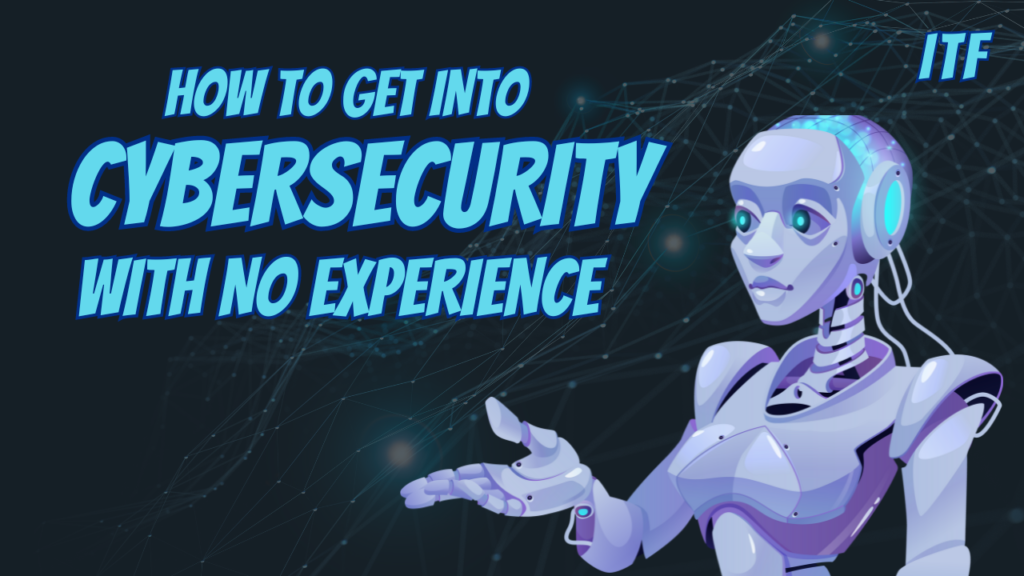In the dynamic realm of cybersecurity, the demand for skilled professionals is surging. It’s a field that offers exciting challenges, job security, and the opportunity to safeguard digital landscapes. But what if you have no prior experience? Can you still make a successful foray into cybersecurity? Absolutely! In this guide, we’ll outline a step-by-step approach to help you get started on your cybersecurity journey, even if you’re a complete novice in the field.
1. Build a Solid Foundation:
Before diving into cybersecurity, it’s crucial to have a fundamental understanding of computer systems, networks, and operating systems. Take online courses or enroll in introductory IT courses to familiarize yourself with these basics.
2. Define Your Path:
Cybersecurity is a vast field with various specialties, including ethical hacking, security analysis, risk assessment, and more. Research these areas to identify which aligns best with your interests and career goals.
3. Self-Study and Online Resources:
The internet is a treasure trove of cybersecurity resources. Utilize online platforms like Cybrary, Coursera, Udemy, and edX to access free and paid courses, tutorials, and webinars. Focus on beginner-level content to build your knowledge from the ground up.
4. Learn from Books and Blogs:
Invest in cybersecurity books like “Hacking for Dummies” by Kevin Beaver and “The Basics of Hacking and Penetration Testing” by Patrick Engebretson. Follow cybersecurity blogs and websites to stay updated on industry trends and news.
5. Capture the Flag (CTF) Challenges:
Participate in CTF challenges available on platforms like Hack The Box and TryHackMe. These simulated exercises offer hands-on experience in solving real-world cybersecurity problems.
6. Online Communities and Forums:
Join online cybersecurity communities and forums like Reddit’s r/cybersecurity and Stack Exchange’s Security Stack Exchange. Engage in discussions, ask questions, and learn from experienced professionals.
7. Networking:
Attend local cybersecurity meetups, webinars, and conferences. Building a network of like-minded individuals can provide valuable insights, mentorship opportunities, and potential job leads.
8. Certifications:
While not mandatory, certifications can validate your skills and improve your employability. Start with entry-level certifications like CompTIA Security+ and Certified Information Systems Security Professional (CISSP) if you’re aiming for a higher level.
9. Home Lab Setup:
Create a home lab environment to practice cybersecurity techniques. Set up virtual machines, experiment with different tools (e.g., Kali Linux), and simulate real-world scenarios to hone your skills.
10. Soft Skills Matter:
In addition to technical skills, cybersecurity professionals need strong problem-solving, communication, and critical-thinking skills. Work on developing these soft skills, as they’re highly valued in the field.
11. Internships and Entry-Level Jobs:
Apply for internships, entry-level positions, or IT roles that have a security component. Gaining practical experience, even in a related field, can help you transition into cybersecurity.
12. Volunteer and Freelance:
Offer your cybersecurity skills to nonprofit organizations, charities, or small businesses. Volunteering or freelancing can help you build a portfolio and gain real-world experience.
13. Personal Projects:
Undertake personal cybersecurity projects, such as setting up a secure home network or auditing the security of your own devices. Document your projects to showcase your skills to potential employers.
14. Continuous Learning:
Cybersecurity is an ever-evolving field. Stay up-to-date with the latest trends, threats, and technologies through continuous learning and professional development.
Conclusion
Breaking into cybersecurity with no prior experience is challenging but entirely feasible. With determination, self-study, hands-on practice, and a commitment to learning, you can pave your way to a rewarding career in this high-demand field. Remember that your journey will require dedication, patience, and a willingness to adapt to the ever-changing cybersecurity landscape.
